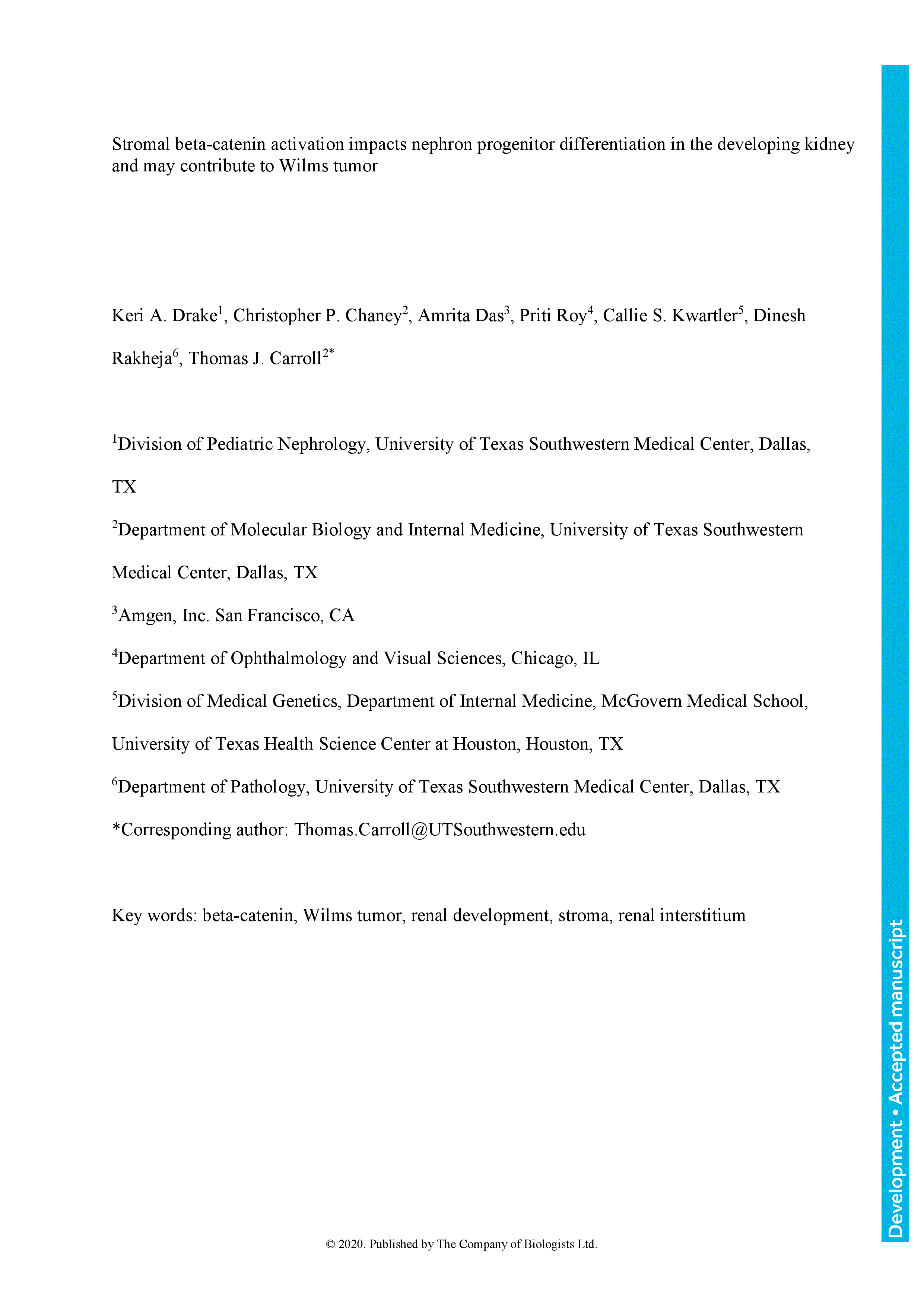Wilms tumor (WT) morphologically resembles the embryonic kidney, consisting of blastema, epithelial, and stromal components, suggesting tumors arise from the dysregulation of normal development. Beta-catenin activation is observed in a significant proportion of WTs; however, much remains to be understood about how it contributes to tumorigenesis. While activating beta-catenin mutations are observed in both blastema and stromal components of WT, current models assume that activation in the blastemal lineage is causal. Paradoxically, studies performed in mice suggest that activation of beta-catenin in the nephrogenic lineage results in loss of nephron progenitor cell (NPC) renewal, a phenotype opposite to WT. Here, we show that activation of beta-catenin in the stromal lineage non-autonomously prevents the differentiation of NPCs. Comparisons of the transcriptomes of kidneys expressing an activated allele of beta-catenin in the stromal or nephron progenitor cells reveals that human WT more closely resembles the stromal-lineage mutants. These findings suggest that stromal beta-catenin activation results in histological and molecular features of human WT, providing insights into how alterations in the stromal microenvironment may play an active role in tumorigenesis.
Stromal beta-catenin activation impacts nephron progenitor differentiation in the developing kidney and may contribute to Wilms tumor
Currently Viewing Accepted Manuscript - Newer Version Available
Keri A. Drake, Christopher P. Chaney, Amrita Das, Priti Roy, Callie S. Kwartler, Dinesh Rakheja, Thomas J. Carroll; Stromal beta-catenin activation impacts nephron progenitor differentiation in the developing kidney and may contribute to Wilms tumor. Development 2020; dev.189597. doi: https://doi.org/10.1242/dev.189597
Download citation file:
Advertisement
Call for papers: Uncovering Developmental Diversity

Development invites you to submit your latest research to our upcoming special issue: Uncovering Developmental Diversity. This issue will be coordinated by our academic Editor Cassandra Extavour (Harvard University, USA) alongside two Guest Editors: Liam Dolan (Gregor Mendel Institute of Molecular Plant Biology, Austria) and Karen Sears (University of California Los Angeles, USA).
Choose Development in 2024

In this Editorial, Development Editor-in-Chief James Briscoe and Executive Editor Katherine Brown explain how you support your community by publishing in Development and how the journal champions serious science, community connections and progressive publishing.
Journal Meeting: From Stem Cells to Human Development

Register now for the 2024 Development Journal Meeting From Stem Cells to Human Development. Early-bird registration deadline: 3 May. Abstract submission deadline: 21 June.
Pluripotency of a founding field: rebranding developmental biology

This collaborative Perspective, the result of a workshop held in 2023, proposes a set of community actions to increase the visibility of the developmental biology field. The authors make recommendations for new funding streams, frameworks for collaborations and mechanisms by which members of the community can promote themselves and their research.
Read & Publish Open Access publishing: what authors say

We have had great feedback from authors who have benefitted from our Read & Publish agreement with their institution and have been able to publish Open Access with us without paying an APC. Read what they had to say.



